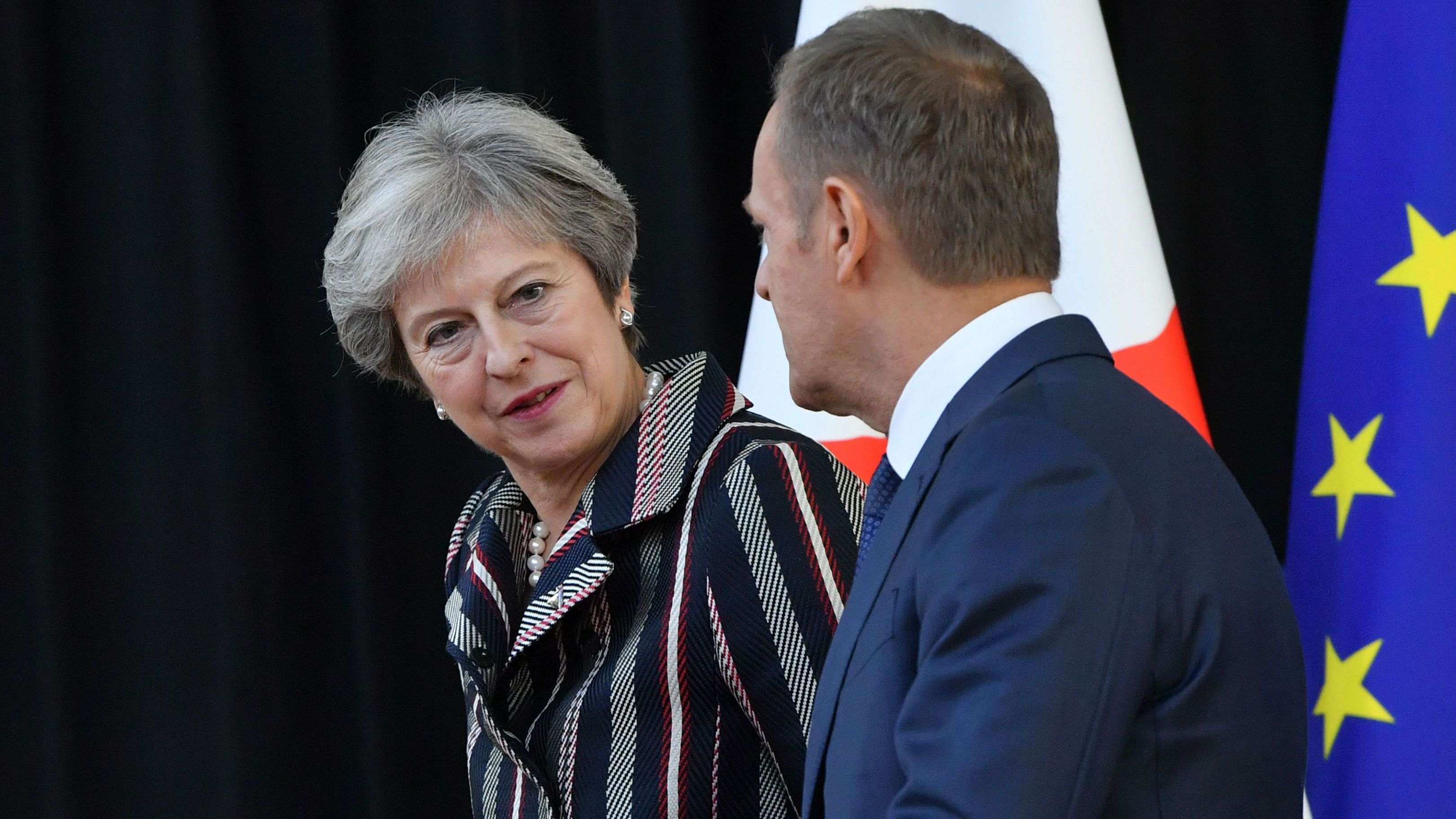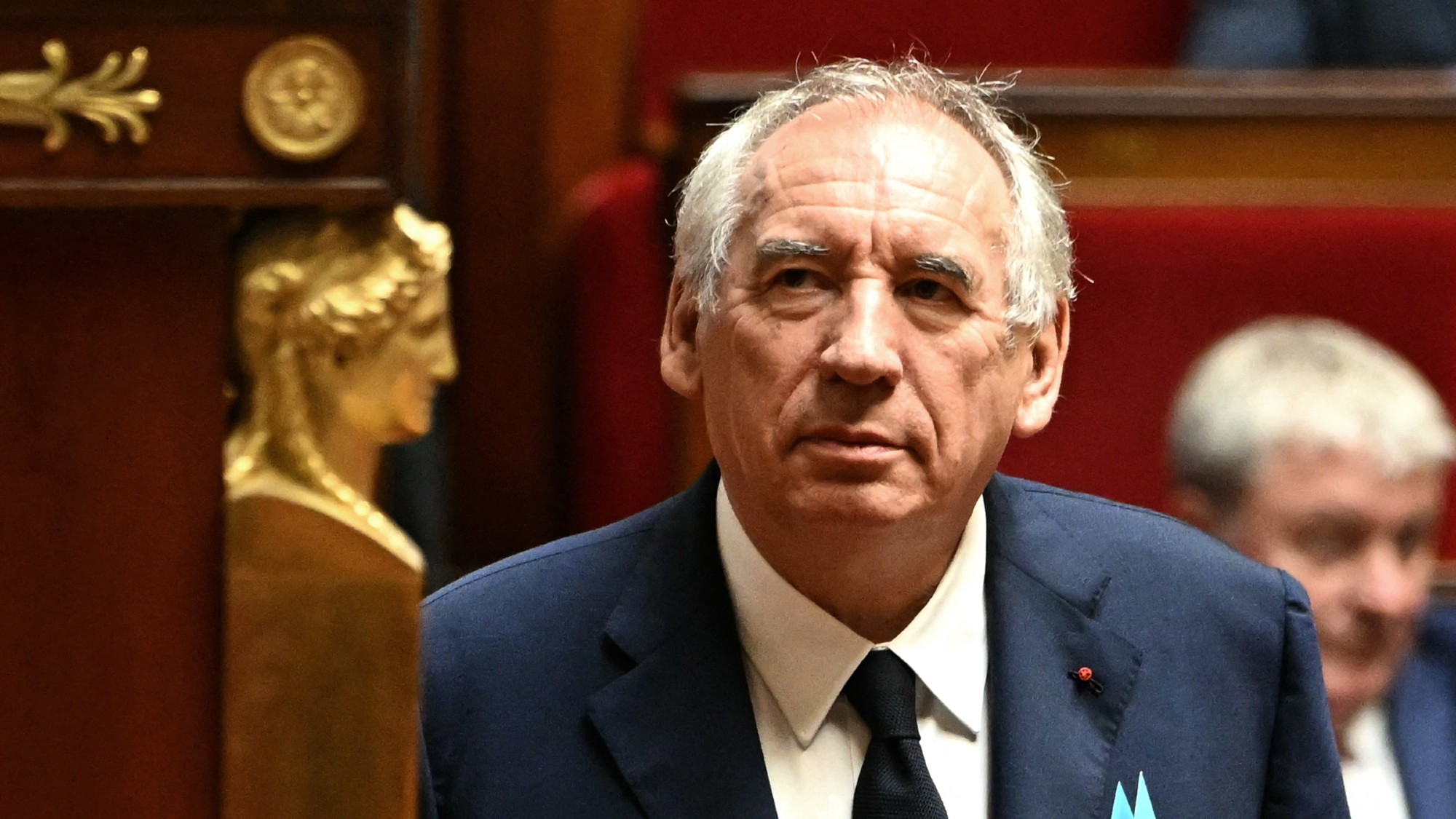What is Theresa May’s secret Brexit deal?
Breakthrough in negotiations reported ahead of crucial few days for the PM

A free daily email with the biggest news stories of the day – and the best features from TheWeek.com
You are now subscribed
Your newsletter sign-up was successful
Theresa May heads into a make-or-break week of Brexit negotiations amid widespread reports that she is close to securing a withdrawal agreement between the UK and the EU.
The next eight days “will be the last chance both the UK and EU have to arrange a special November summit later this month”, says HuffPost’s Paul Waugh.
However, the prime minister is said to have rowed back on claims this weekend that a deal in principle had been struck already. May spent Sunday “telephoning key cabinet ministers as Downing Street sought to calm fears that she was about to dash to the finishing line of Brexit talks”, according to The Times’ Francis Elliott.
The Week
Escape your echo chamber. Get the facts behind the news, plus analysis from multiple perspectives.

Sign up for The Week's Free Newsletters
From our morning news briefing to a weekly Good News Newsletter, get the best of The Week delivered directly to your inbox.
From our morning news briefing to a weekly Good News Newsletter, get the best of The Week delivered directly to your inbox.
“The prime minister will update the Cabinet [this week] on the state of talks, but allies insisted that she would not present ministers with a draft deal already agreed in outline,” he adds.
The Telegraph’s Peter Foster also believes that a deal has yet to be done, but insists it may be agreed this week. “Theresa May’s top Brexit negotiator, Olly Robbins, [is preparing] to go to Brussels to clinch an in-principle Brexit divorce deal this week, triggering an extraordinary EU leaders summit later this month,” Foster says.
So what definitely has been agreed between the UK and the EU, and what remains to be resolved?
What has been agreed?
A free daily email with the biggest news stories of the day – and the best features from TheWeek.com
“The prime minister is expected to confirm she has resolved with the EU the future status of Gibraltar, developed a protocol around the UK’s military base in Cyprus and agreed a mechanism for resolving any future disputes with the EU,” reports The Guardian.
May is also believed to have fixed the divorce bill at £39bn; agreed to an implementation period extending to the end of 2020 at least; and determined the rights of EU citizens living in the UK and UK citizens living in EU member states, says the newspaper.
What still needs to be resolved?
The main sticking point continues to be the Irish backstop, intended to prevent a hard border between Ireland and Northern Ireland.
The Sunday Times reported this weekend that there had been a breakthrough on the issue, with the EU now accepting “that regulatory checks on goods can take place ‘in the market’ by British officials, meaning they can be conducted at factories and shops rather than at the border”. The newspaper added that the withdrawal agreement would also feature an all-UK customs deal, eliminating the need for an EU-designed backstop that would see Northern Ireland treated differently from the UK mainland.
But the Telegraph’s Foster quotes a negotiating source who fears that negotiations are “going backwards” on the backstop issue, following a heated meeting between Brexit Secretary Dominic Raab and Irish Foreign Minister Simon Coveney last week.
Raab is said to have “stunned” his Irish counterparts by suggesting that the UK should have the right to pull out of the customs deal to keep the Irish border open, with just three months’ notice.
The frosty status of relations between the UK and Ireland has been underlined by a tweet from Coveney that said: “The Irish position remains consistent and v clear that a ‘time-limited backstop’ or a backstop that could be ended by UK unilaterally would never be agreed to by IRE or EU. These ideas are not backstops at all + don’t deliver on previous UK commitments.”
Meanwhile, EU officials and diplomats have “cautioned against the optimism expressed by some about the imminence of a breakthrough, describing the chances of striking a deal that meets both sides needs as ‘50-50’”, says The Guardian.
“The reality is that we need a November summit more than the EU do,” a UK government source told the paper.
Almost everyone at Westminster “expects that there will be movement on Brexit some point late this week or early the next”, says the New Statesman’s Stephen Bush.
But “by ‘movement’, of course, what they mean is that the United Kingdom will make a concession that May will desperately try to package as a defeat for the EU27”, Bush adds.
-
 Quiz of The Week: 14 – 20 February
Quiz of The Week: 14 – 20 FebruaryQuiz Have you been paying attention to The Week’s news?
-
 The Week Unwrapped: Do the Freemasons have too much sway in the police force?
The Week Unwrapped: Do the Freemasons have too much sway in the police force?Podcast Plus, what does the growing popularity of prediction markets mean for the future? And why are UK film and TV workers struggling?
-
 Properties of the week: pretty thatched cottages
Properties of the week: pretty thatched cottagesThe Week Recommends Featuring homes in West Sussex, Dorset and Suffolk
-
 How corrupt is the UK?
How corrupt is the UK?The Explainer Decline in standards ‘risks becoming a defining feature of our political culture’ as Britain falls to lowest ever score on global index
-
 The high street: Britain’s next political battleground?
The high street: Britain’s next political battleground?In the Spotlight Mass closure of shops and influx of organised crime are fuelling voter anger, and offer an opening for Reform UK
-
 Biggest political break-ups and make-ups of 2025
Biggest political break-ups and make-ups of 2025The Explainer From Trump and Musk to the UK and the EU, Christmas wouldn’t be Christmas without a round-up of the year’s relationship drama
-
 ‘The menu’s other highlights smack of the surreal’
‘The menu’s other highlights smack of the surreal’Instant Opinion Opinion, comment and editorials of the day
-
 Is a Reform-Tory pact becoming more likely?
Is a Reform-Tory pact becoming more likely?Today’s Big Question Nigel Farage’s party is ahead in the polls but still falls well short of a Commons majority, while Conservatives are still losing MPs to Reform
-
 Taking the low road: why the SNP is still standing strong
Taking the low road: why the SNP is still standing strongTalking Point Party is on track for a fifth consecutive victory in May’s Holyrood election, despite controversies and plummeting support
-
 Is Britain turning into ‘Trump’s America’?
Is Britain turning into ‘Trump’s America’?Today’s Big Question Direction of UK politics reflects influence and funding from across the pond
-
 Why can't France hold on to its prime ministers?
Why can't France hold on to its prime ministers?Today's Big Question Spiralling debt, ageing population and cultural refusal to accept budget cuts – despite high welfare spending – have been turbocharged by Emmanuel Macron